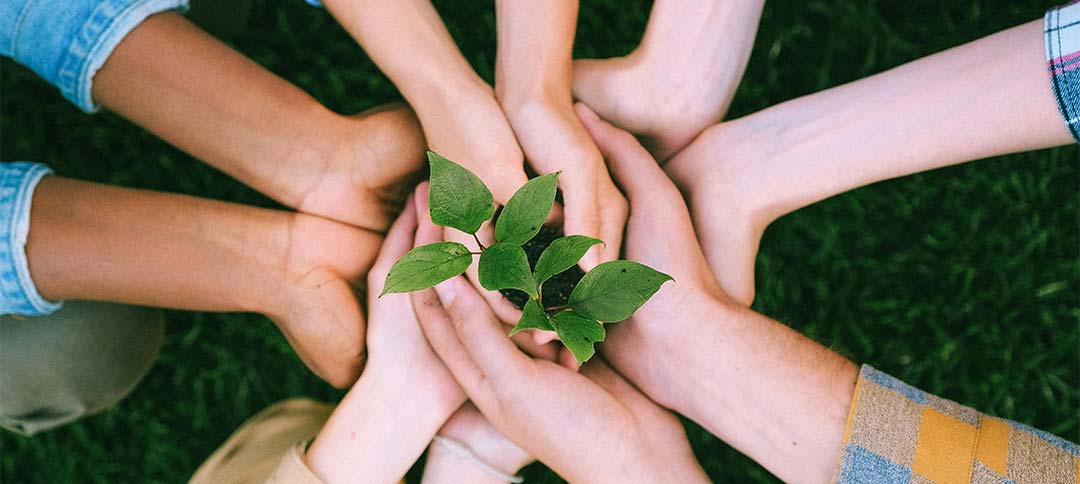Ever wonder why people volunteer? It’s not just about being nice or giving up time. It’s something deeper. When we volunteer, we’re choosing to help, on purpose.
We’re giving a piece of ourselves to something that matters. And in return, we often get back more than we expect.
Volunteering can look different for everyone. It might be planting flowers in a community garden, helping a neighbor get groceries, or texting reminders to donors for a nonprofit. It all counts. And it all helps.
If you’ve ever thought about volunteering but didn’t know where to start, or if you’re just curious why so many people do it, this guide’s for you. We’re breaking down what drives people to step up, how it helps (both others and you), and how to find something that feels like the right fit.
Discovering your sense of purpose through volunteer work
Volunteering helps people feel like they matter. That sounds simple, but it’s powerful. When you choose to help someone or something, it gives your actions meaning. You’re not just filling time, you’re doing something that makes the world a little better.
A lot of people say they started volunteering to give back. But many keep going because it gives them a reason to get up in the morning. It feels good to know you’re part of something bigger than yourself. You see the impact. You feel useful. That’s what purpose looks like.
Even if you’re not sure what your purpose is yet, volunteering can help you find it. You try things, meet people, and see what lights you up. And that feeling, that spark, is something you’ll want to keep chasing.
Social connection and meeting people from diverse backgrounds
Volunteering is one of the easiest ways to meet people, and not just anyone, but people who care about the same things you do. Whether it’s helping at a shelter, planting trees, or joining a fundraiser, you’re instantly surrounded by others who showed up for the same reason: to help. For instance, someone who volunteers at a breast cancer fundraising walk will meet survivors and supporters all coming together for that cause.
You might meet someone who grew up across the country. Or someone older who’s been doing this for years. Or a high school student just getting started. Volunteering brings people from all kinds of backgrounds together. That mix of experiences makes the work stronger, and more fun.
And even if you’re shy or new to the area, helping out gives you something to talk about. You’re part of a team. Over time, those little chats and shared tasks can turn into real friendships.
Strengthening existing communities and services
When people volunteer, they help keep their communities running. A lot of the services we count on, like food banks, after-school programs, or community gardens, depend on volunteers to stay open and do their work. Without them, some of these programs wouldn’t exist at all.
Maybe it’s older volunteers mentoring teens through a youth program like 4-H, or neighbors teaming up to fix up a park.
And when you pitch in, even in a small way, you become part of the support system. You’re not just helping someone, you’re helping keep the whole thing going. That kind of work makes communities stronger, safer, and more connected.
Earning new skills and gaining valuable volunteer experience
Volunteering isn’t just good for others, it helps you grow, too. You can learn a lot just by showing up and trying something new. Maybe you figure out how to plan events, talk to donors, run social media, or work with a team. These are real skills you can take with you anywhere.
If you’re in school or just starting out, volunteering is a way to get hands-on experience. It shows you what you’re good at, and what you might want to do more of. Even if you’ve been working for years, it can be a chance to try something different without pressure.
The best part? You don’t have to be an expert. People are just glad you’re there. You learn as you go, and that learning sticks, because it’s connected to something that matters.
Volunteering and mental health: The mind–body connection
Helping others feels good, and it’s not just in your head. Studies show that volunteering can actually boost your mental and physical health. It lowers stress, helps you feel calmer, and even makes you more active.
When you spend time focused on someone else, your mind gets a break from your own worries. You feel more connected, more useful, and sometimes, more hopeful. That sense of connection and purpose is good for your brain and your body.
For older volunteers, it can be especially powerful. Staying engaged, moving around, and feeling needed can keep you sharp and energized. But no matter your age, doing good for others often ends up doing good for you, too.
Volunteering as a tool for career and personal development
If you’re looking to grow, at work or in life, volunteering is a smart place to start. It gives you real-world experience without the pressure of a paid job. You might lead a project, speak in front of a group, or help run an event. All of that builds confidence and sharpens your skills.
For students, volunteering can check off school program requirements while giving a sneak peek at different careers. For adults, it can help you switch paths or fill a gap in your resume. And for anyone, it’s a chance to stretch yourself and learn in a hands-on way.
You never know who you’ll meet or what you’ll discover you’re good at. Sometimes the best lessons, and biggest growth, happen when you step into something new, just to help.
How to find the right volunteer opportunity for you
Not every volunteer job is the same, and that’s a good thing. There’s something out there for every schedule, interest, and energy level. The key is to find something that fits your life and feels meaningful to you.
Start by thinking about what you enjoy. Do you like working with kids? Being outside? Organizing things behind the scenes? Then think about how much spare time you have. Even an hour a week can make a difference.
It also helps to ask questions:
- What kind of help do they need?
- Can I try it once before committing?
- Will someone show me what to do?
You don’t have to get it perfect the first time. Try different things. Talk to people. And notice how it feels. The right opportunity won’t just fill your time, it’ll give something back.
Unique barriers and how to overcome them
Let’s be real, volunteering isn’t always easy to jump into. Maybe your schedule’s packed. Maybe you’re nervous about trying something new. Or maybe you think you don’t have the right skills. These are all normal worries.
But here’s the truth: most places are just glad you want to help. A lot of volunteer opportunities are flexible, some even let you help from home. If you have limited mobility or energy, there are still things you can do that matter, like making calls or sending thank-you notes.
It’s okay to start small. You don’t have to sign up for a huge commitment. Ask what’s possible. Talk to people running the program. The best organizations will help you find a way to pitch in that works for you.
Your effort matters
So, you’re ready to get started. That’s the hardest part, deciding to do something. Now it’s just about taking the first small step.
Look around your neighborhood. Ask a friend where they volunteer. Check out local nonprofits or school programs online. You don’t need a fancy setup, just a little curiosity and a willingness to help.
Once you’ve found a place, show up, ask questions, and be open. You’ll learn as you go. And remember, even if it feels small, your effort matters. Every bit of help adds up.
Volunteering creates real change. Harness empowers organizations like yours to inspire and engage everyday heroes, learn how today.




